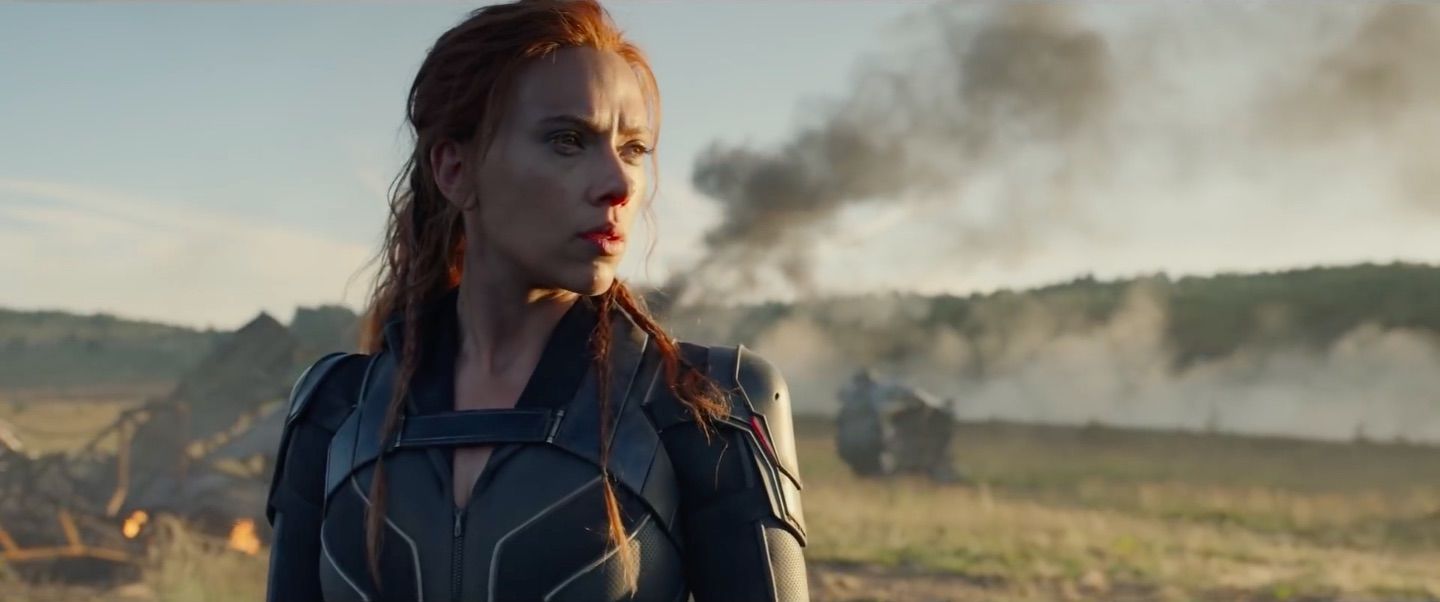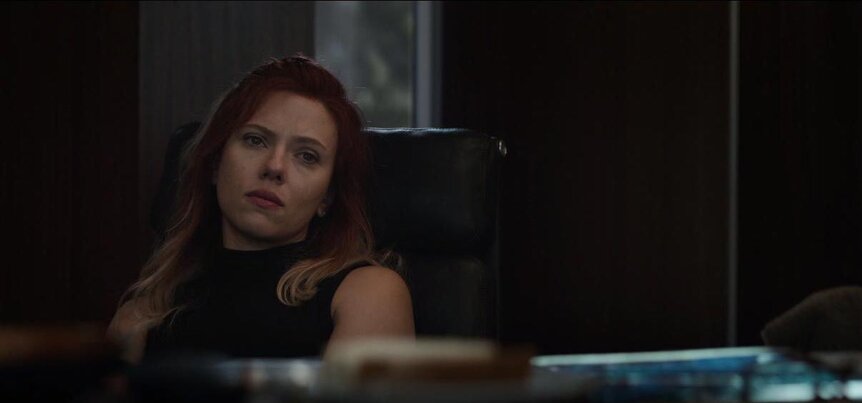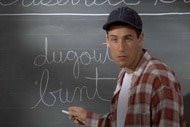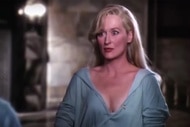Create a free profile to get unlimited access to exclusive videos, sweepstakes, and more!
Is it too little too late for a Black Widow movie?

"Nothing lasts forever."
It's a line from the recently released teaser for Scarlett Johansson's long-awaited Black Widow movie, but it might as well describe our fizzling interest in this particular comic book character.
That's not because we don't want to see more of the MCU's ass-kicking super-spy, a Russian agent named Natasha Romanoff, on the big screen. Black Widow is one of the more layered, compellingly complicated heroes in Marvel's line-up, a woman with a dark and tragic past whose journey centers on embracing her origins and overcoming her moral shortcomings. And hopefully with a woman at the helm, director Cate Shortland, those origins will be done justice in this film, which looks to bridge the heroine's past with the MCU's future, setting up new characters and conflicts to fuel the next phase of superhero lore.
But there's a nagging feeling that comes with watching Johansson suit up again, an almost bitter despondency that it's taken this long to give the character her due. And instead of simply being thankful that Natasha Romanoff is alive and well and the star of the show for once, as so many want us to do, maybe we should dig into those pesky misgivings, that dormant rage that comes with being tossed a bone and told to respond with performative gratitude.
We are grateful that another female comic book character – the now third – is being spotlighted. We're also mad as hell that it's taken so long.
As interesting and nuanced as the Black Widow is, it's difficult to drum up any excitement in her continued character arc. It's been nearly a decade since she was first introduced to fans. In that time, her character has served largely in the background, earning a few moments of brilliance and dedicated screen time in films like Winter Soldier and Civil War. She's been typecast as the femme fatale out to seduce and manipulate billionaire playboys in Iron Man 2. She's served as a love interest for another damaged male character in Age of Ultron, a film that tied her infertility and past trauma to the monstrous choices she made as an assassin, equating the supposed "evil" inside of her with her inability to bear children. She teased Captain America with her sexuality in Winter Soldier, she babysat two warring men in Civil War, she all but fell off the grid in Infinity War, and, perhaps worst of all, she was left to manage the fallout of Endgame on her own before sacrificing herself for another damaged male character who channeled his grief into killing minorities — drug cartel members and Japanese gangsters. Natasha has never had complete autonomy in the MCU, no matter how badass or "strong" the franchise has attempted to paint her as and the lack of her own solo film, especially in relation to the success and praise of other female superhero projects like DC's Wonder Woman and Captain Marvel is glaring.
For whatever reason — sexism, the lack of faith in female-led action films, Natasha's lack of superhuman abilities — Black Widow wasn't given the chance to tell her own story until after she proved her worth by giving up her life, and that's a problem. It's a problem because the character deserved better, she deserved more and sooner. But it's also a problem because knowing that Natasha will ultimately die in place of Clint Barton makes the stakes feel less important, the investment in her character less necessary in this latest film.
Shortland's Black Widow supposedly imagines the time between Civil War and Infinity War, when Natasha was living off the grid but before she rejoined with Cap to take on Thanos. It would've been a lovely story to tell a few years earlier, and it still has value — setting up other characters like Florence Pugh's Yelena or David Harbour's Red Guardian. But, as much as we've come to care for the character, what is the point in caring about her journey now? It's been alluded to and addressed outright, it's been used to fuel her reasoning for continuing the fight in Endgame, this idea that she finally found a family in her Avengers teammates. Why are we only now investigating that link to this theme of "family" that driving force that was used to explain her actions in Endgame? Why are we honoring the Black Widow posthumously?
It's especially disheartening to realize we're giving the character her overdue solo film at the very same moment that the actress who plays her is fielding criticism for her work outside of the MCU. Johansson is a capable actress who's done quite a bit of legwork in the fight for equality when it comes to women taking on these more action-heavy leading roles, but she's also been embroiled in white-washing controversies, she's mishandled decisions to take on queer and transgender roles, she's defended her friendship with director Woody Allen despite sexual assault allegations from Dylan Farrow and Johansson's own pledge to believe victims. It's hard to separate the character from the actress, much in the same way that it's hard to look at someone like Chris Evans, who's been playing Steve Rogers for years, and not automatically think of Captain America. And if we can't separate the person from the part they're playing, then inevitably, that part is colored by the actor's missteps off-screen. It's not Johansson's fault that it took this long to make a Black Widow movie, it's just unlucky for her that some of her more obvious lapses in judgment just happen to be occurring during the rollout for this film.
So sure, it's great that Natasha Romanoff is determined to "stop running from her past," and we'll support this film in the same way we support every female-led genre piece hoping to change the conversation and achieve a bit more equality for women in the space. But please, stop acting like we should be grateful or even excited to see more of Black Widow's storyline. It doesn't mean we're bad feminists or sh***ty genre fans, it just means we're tired of performing this particular patriarchal song and dance.
The views and opinions expressed in this article are the author's, and do not necessarily reflect those of SYFY WIRE, SYFY, or NBCUniversal.















